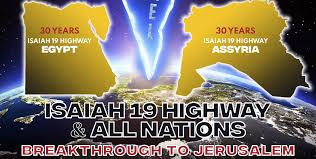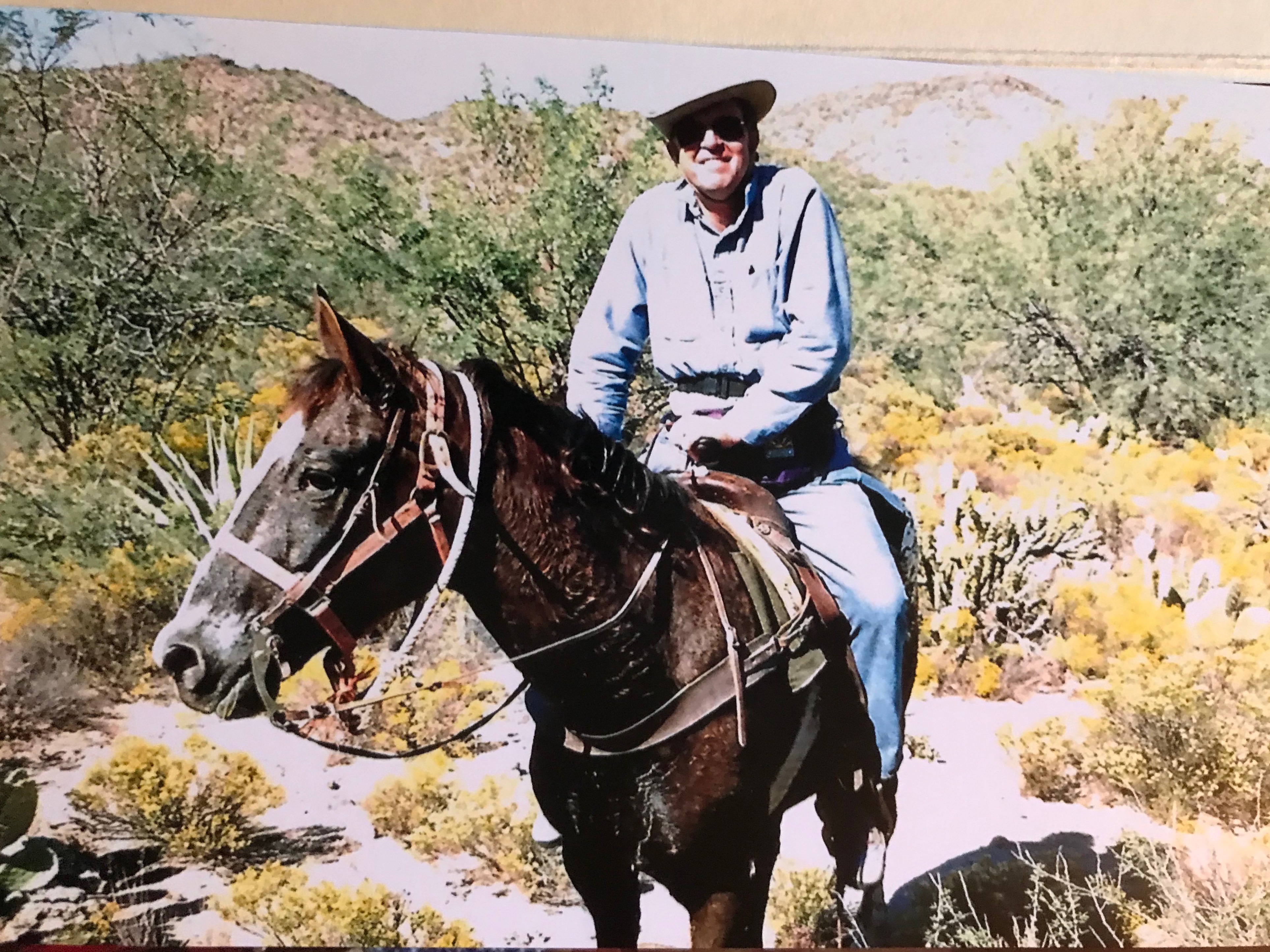The Babylonian priesthood and system was well-established when the Persian king Cyrus took over the city around 540 BC. Following the fall of ancient Babylon to the Medes and Persians (Daniel 5:31), the Emperor Cyrus tolerated all religions. Eventually, however, the Babylonian priests tried to set up their own king. Their base was destroyed by the Persian Xerxes and they were banished from Babylonia and, indeed, the whole kingdom about 485 BC.
“The defeated [Babylonian priests] fled to Asia Minor, and fixed their central college at Pergamos [Turkey], and took the palladium of Babylon, the cubic stone, with them. Here, independent of state control, they carried on the rites of their religion” (William B. Barker, ‘Lares and Penates: or, Cilicia and Its Governors,’ Ingram, Cooke and Co., London, 1853, pp. 232–233) quoted in the journal "Vision" for Summer 2001.)
That is why the Church at Pergamos is told that they "dwell where Satan's throne is" and "where Satan dwells" (Revelation 2:13). So effectively, the Satanically inspired Babylonian system was transferred to Turkey. Therefore, Babylon the Great need not be in the location of Old Babylon but rather near the newer location in Turkey. So for these reasons, Turkey looks increasingly likely to be the country from which Antichrist emerges.
The capital of Ancient Syria, (Ninevah) is modern day Mosul. Extensive ruins there have been old partially excavated. Some believe the Hanging Guardians were not in Babylon. but North in Ninevah. Remember in Isaiah how Sennacherib from Nineveh, capital of Assyria (Mosul, Iraq) invaded the Ten Northern tribes in 722 BC and threatened Jerusalem in the days of Hezekiah? (727-721)?
Isaiah prayed and the Angel of the Lord wiped them all out (185,000) overnight, Isaiah 38-39. Sennacherib retreated home to Ninevah but his sons murdered him when he was in the temple of his God. In 605 Nebuchadnezzar rose to power at the Battle of Carchemish. He took Daniel and friends to Babylon about that time. Jerusalem fell in 586 and the Persians took over Babylon in 547 BC.
Jonah preached at Ninevah in 782 BC and their judgment was postponed for 160 years until Nahum, 612 BC.
Mosul is North of Baghdad and Babylon is South of Baghdad. Both are in modern day Iraq. Both on the Euphrates River. So I expect the Assyrian will be an invader from Iraq. Both Sennacherib and Nebuchadnezzar invaded from the same area.
Note in Daniel 11 how Egypt will be a major player in the events surrounding the campaign of Armageddon.
The “king” in Daniel 11:36 will likely be the next prime minister in Israel. His peace treaty with the Antichrist will fail at mid-trib. Ray Stedman thought this last prime minister of Israel was the false prophet, the “beast out of the land” In Revelation 13.
The two major powers that existed to the south and north of Jerusalem after the death of Alexander the Great were Egypt to the south (with its kings referred to as Ptolemy) and Syria to the north (with its kings referred to as Seleucus or Antiochus).
The prophecy in Daniel 11:5-31 then documents the historical interactions between the king of the South and the king of the North.
Next, this prophecy seems to include the story of the Maccabees, a Jewish family that led the resistance against Antiochus and his successors because of their efforts to force the Jewish people to accept pagan Greek practices (verses 32-39).
The last Assyrian invades at the mid point of the tribulation. This is not leader of the the Gog/Magog invasion which happens right after the Rapture. God destroys those armies. Daniel 11:40 says Armageddon will be initiated by Egypt, with Iraq’s the last King of the North. The Assyrian will overrun Israel and invade even Egypt.
The opening words of Psalm 2 pose a question that has baffled mankind through the centuries. The Psalmist asks, "Why do the nations rage?" That is, why is it so difficult to bring about international peace? Why, after thousands of peace conferences held through the centuries, are we no closer to world peace?
In the 60's, the Burmese statesman U Thant, who was then Secretary-General of the United Nations, convened an international conference to try to discover a way to world peace and to help resolve the international conflicts of that day. Some 1600 delegates from 42 different countries assembled in the United Nation's headquarters. In his opening address, U Thant asked three remarkable questions: What element is lacking so that with all our skill and all our knowledge we still find ourselves in the dark valley of discord and enmity? What is it that inhibits us from going forward together to enjoy the fruits of human endeavor and to reap the harvest of human experience? Why is it that, for all our professed ideals, our hopes and our skills, peace on earth is still a distant objective, seen only dimly through the storms and turmoils of our present difficulties? Here is an honest cry of frustration and bafflement from the heart of a statesman wrestling with the problem, "Why do the nations rage?"
That question is answered many times in the Scriptures, but notably here in this section of Isaiah, beginning with Chapter 13. In these chapters the prophet is given a vision concerning the great world powers that surrounded Israel in that day. The prophecy begins with a word concerning Babylon; then focuses on Assyria, Moab, Egypt, Edom and other nations; and ends in Chapter 23 with the burden of the city-nation of Tyre.
These messages were wholly predictive when they were uttered. They point out things that are going to happen from Isaiah's time onward. As we look back on history we can see that much of this prophecy has already been fulfilled. One of the secrets of understanding Old Testament prophecy is to separate the historic from the yet still future. These nations are not only historic but are symbols of forces at work in every age and every generation. What makes this passage so real and valuable to us is that through the experience of these nations we begin to understand our own personal struggles.
I wish I could cover these passages in detail, but I must move rather rapidly. Chapters 13 and 14 concern the city of Babylon; "the burden of Babylon," or, "the oracle concerning Babylon," as it is in the RSV. When Isaiah wrote this, Babylon was not yet a world power but only a small city on the banks of the Euphrates River. It would not come into world prominence for 200 years after Isaiah. What the prophet is describing here is not the rise of Babylon as a great city and world power, but the fall of the empire. The chapter opens in beautiful poetic language with a description of an army assaulting the gates of the city, and the summons comes from God to enter its gates and capture the city. This is historically fulfilled in Chapter 5 of the book of Daniel. There is recorded the story of the conquering of Babylon under its king, Belshazzar. During a great feast which the king gave in the palace he brought out the vessels from the temple in Jerusalem and used them in riotous debauchery. A supernatural hand appeared and wrote on the wall, "Mene, Mene, Tekel, Upharsin," meaning, "Your kingdom has been numbered and divided among the Medes and Persians."
That very night Darius the Mede took the city, just as Isaiah predicts. I will call your attention only to certain verses in this section. In Verse 6 the prophet says:
Wail, for the day of the Lord is near;
as destruction from the Almighty it will come! (Isaiah 13:6 RSV)
Isaiah labels this time of the fall of Babylon as a manifestation of "the day of the Lord," a time of judgment from God, even though that judgment came at the hands of another nation. This is God's process throughout history: he uses one nation to judge another. In World War II, he used Hitler to judge the nations of the world; then he used the other nations to judge Germany under Hitler. Here this judgment is called "the day of the Lord."
In Verse 9 Isaiah repeats this phrase, but he is now talking about a future "day of the Lord," the final, terrible "Day of the Lord." Notice how the language expands here:
Behold, the day of the Lord comes,
cruel, with wrath and fierce anger,
to make the earth [not the land, but the Earth] a desolation
and to destroy its sinners from it.
For the stars of the heavens and their constellations
will not give their light;
the sun will be dark at its rising
and the moon will not shed its light.
I will punish the world [not just the Earth but the World] for its evil,
and the wicked for their iniquity;
I will put an end to the pride of the arrogant,
and lay low the haughtiness of the ruthless.
I will make men more rare than fine gold,
and mankind than the gold of Ophir.
Therefore I will make the heavens tremble,
and the earth will be shaken out of its place,
at the wrath of the Lord of hosts
in the day of his fierce anger. (Isaiah 13:9-13 RSV)
Many times in the Old Testament prophets you will find a description of "the terrible day of the Lord." This is a day yet future, described in the book of Revelation under the symbol of the trumpets and the vials of judgment that are poured out upon the earth. One of the signs of "that day" is this prediction, repeated several times in Scripture, that the sun will be darkened and the moon will not give its light. In the 24th chapter of Matthew our Lord himself spoke of a time when "the sun shall be darkened and the moon shall not give its light, and the stars will fall from the heavens," Matthew 24:29). Then shall be the great tribulation that has been long predicted in the Scriptures. This is what we have here in Isaiah.
In Verse 14 through to the end of the chapter, the prophet returns to the historic destruction of the great city of Babylon after its rise to empire status. This is accomplished, we read in Verse 17, by the Medes:
Behold, I am stirring up the Medes against them,
who have no regard for silver
and do not delight in gold. (Isaiah 13:17 RSV)
We know that history has fulfilled this in the capture of Babylon under Darius the Mede. The closing verses of this chapter give the ultimate fate of this great city. Verses 20-24:
It will never be inhabited
or dwelt in for all generations;
no Arab will pitch his tent there,
no shepherds will make their flocks lie down there.
But wild beasts will lie down there,
and its houses will be full of howling creatures;
there ostriches will dwell,
and there satyrs will dance.
Hyenas will cry in its towers,
and jackals in the pleasant palaces;
its time is close at hand
and its days will not be prolonged. (Isaiah 13:20-22 RSV)
This, too, is history now. For centuries the site of Babylon was actually lost. So totally destroyed was the city that no one could even find where it had been located, great as it had been. Only in the early part of this century did the spade of the archaeologist turn it up again. For all those long centuries these words were literally fulfilled. Babylon was a total desolation, without life, except by wild animals.
The animals mentioned, hyenas, jackals, satyrs, ostriches, etc., are not the actual names of the dwellers among the ruins. No one really knows what these words refer to. The animals named are only guesses on the part of the translators. This in itself indicates there is something hidden here. Scripture uses Babylon as the symbol of a terrible evil that pervades our whole race and finds its judgment at last in the terrible scenes of the book of Revelation. In Chapter 17 of that book there is a remarkable description given of a beast with seven heads, upon which is seated a woman. The Apostle John, the writer, says in Verse 4:
The woman was arrayed in purple and scarlet, and bedecked with gold and jewels and pearls, holding in her hand a golden cup full of abominations and the impurities f her fornication; and on her forehead was written a name of mystery: "Babylon the great, mother of harlots and of earth's abominations." (Revelation 17:4-5 RSV)
The opening two verses of Chapter 18 give the fate of this woman:
After this I saw another angel coming down from heaven, having great authority; and the earth was made bright with his splendor. And he called out with a mighty voice,
"Fallen, fallen is Babylon the great!
It has become a dwelling place of demons,
a haunt of every foul spirit,
a haunt of every foul and hateful bird; (Revelation 18:1-2 RSV)
The reason that Isaiah's translators cannot translate these names of animals (or whatever they are) is that these are really names of demonic beings. From these names we see confirmation of the biblical use of Babylon as a symbol of spiritual evil.
Babylon gets its name from the Tower of Babel, which means "confusion." That is where God confused the languages of earth. That tower was built by people who said, "Come, let us make a name for ourselves. We will build a tower that reaches unto heaven," Genesis 11:4). Thus, all through the Scriptures, Babylon becomes a symbol of the use of false religion to gain earthly prestige and prominence. Babylon is very much present with us today.
The cults are Babylonish in that sense. They distort the true faith to gain an earthly following, to gain power and prestige among men. Babylonianism is formed in every church to some degree, Protestant, Catholic, whatever. The fall of Babylon as an earthly city did not mean the end of Babylonianism. The error it represents goes on. That gives us a hint as to how these great visions of Isaiah are to be treated.
It is not surprising that Chapter 14, which continues the vision of Babylon, opens with a description of the nation Israel at rest in its own land, free from captivity, and master of its own destiny.
The Lord will have compassion on Jacob and will again choose Israel, and will set them in their own land, and aliens will join them and will cleave to the house of Jacob. And the peoples will take them and bring them to their place, and the house of Israel will possess them in the Lord's land as male and female slaves; they will take captive those who were their captors, and rule over those who oppressed them. (Isaiah 14:1-2 RSV)
This is not a description of the return from Babylon, recorded in the prophecies of Malachi and Haggai, because Israel was still a vassal of Babylon. This prophecy looks on to the end, when Israel will be restored to its land under its own Messiah. He will lead them as they move out against their enemies to gain first place among the nations of the earth. Then they will rejoice in their freedom and break forth into song, as Isaiah records,
When the Lord has given you rest from your pain and turmoil and the hard service with which you were made to serve, you will take up this taunt against the king of Babylon: (Isaiah 14:3a RSV)
[The last king of Babylon was Belshazzar, but the words of this song indicate that this king is more than an earthly king. Clearly, Verse 12 and following describe a supernatural figure who, in the invisible world of the spirit, is behind the earthly kingdom of Babylon. These words are very significant:]
"How you are fallen from heaven, O Day Star, son of Dawn! [literally "O Lucifer, Lightbearer"] How you are cut down to the ground, you who laid the nations low! You said in your heart, 'I will ascend to heaven, above the stars of God I will set my throne on high; I will sit on the mount of assembly in the far north; I will ascend above the heights of the clouds, I will make myself like the Most High.' But you are brought down to Sheol, to the depths of the Pit." (Isaiah 14:12-15 RSV)
We are here looking at what has been called, in theology, "the fall of Satan." Lucifer, the brightest and most beautiful of the angels of God, the nearest to his throne, became so entranced with his own beauty that he rebelled against the government of God and thus became the adversary, Satan. Here he is seen as brought at last to the bottomless pit, mentioned in the book of Revelation.
We are clearly looking beyond the events of earth to that spiritual world which governs those events. As the Apostle Paul put it, "We do not wrestle with flesh and blood, [people are not really the problem] but with wicked spirits in high places, with the rulers of this world's darkness," (Ephesians 6:12). What an instructive term that is. The great king of evil is behind all human wrong. This is why the nations rage, why we cannot achieve peace among men at the level of human counsel. We must reckon with these supernatural beings who are behind the mistakes and mistaken deeds of men.
In this passage we learn the origin and the nature of sin. The root of sin is self-occupation. Ezekiel 28 (which is a parallel passage to this), describes the king of Tyre in similar language to this as a supernatural being, and says, "Your heart became proud on account of your beauty and you corrupted your wisdom because of your brightness," (Ezekiel 28:2, 28:17). Thus the fundamental character of evil is to become occupied with one's self. This is behind the narcissism of the day in which we live. The media constantly push people to look out for themselves, to speak of "My rights, my desires, my plans. What's in it for me." This is the philosophy that, like a ferment, keeps troubling the pot of international relationships, boiling over again and again in wars and conflicts.
The answer to the question, "Why do the nations rage?" is that Lucifer, the Lightbearer, forgot his dependence on God. In self-sufficiency he uttered these five "I wills" recorded here:
"I will ascend to heaven; above the stars of God;"
"I will set my throne on high;"
"I will sit on the mount of assembly in the far north;"
"I will ascend above the heights of the clouds;"
"I will make myself like the Most High." (Isaiah 14:13b-14 RSV)
The nature of sin is to play God in our own little world. It does not matter whether you are a believer or an unbeliever, what constitutes sin is to feel you are in control of your own destiny, that you have all it takes to handle life. First John 3:8 says: "If any man commits sin, he is of the devil, for the devil sinned from the beginning." Playing God is the nature of sin. It is an extremely pleasurable experience. We all have felt, from personal experience, "How sweet it is!" We love it. A Christian businessman of my acquaintance wrote of his own experience:
It's my pride that makes me independent of God. It's appealing to feel I am the master of my fate. I run my own life, I call my own shots, I go it alone. But that feeling is my basic dishonesty. I can't go it alone. I have to get help from other people. I can't ultimately rely on myself. I'm dependent on God for my very next breath. It's dishonest of me to pretend that I'm anything but a man; small, weak and limited. Living independent of God is self-delusion. It's not just a matter of pride being an unfortunate little trait and humility being an attractive little virtue. It's my inner psychological integrity that's at stake. When I am conceited I'm lying to myself about what I am. I am pretending to be God and not man. My pride is the idolatrous worship of myself; and that is the national religion of hell.
This is why these passages that deal with Babylon are so significant to us, for we all have Babylon at work in our lives. Chapters 15 and 16 present what is called "The burden (or the oracle) of Moab." These chapters describe a terrible desolation that is to fall upon Moab. The reason is given in Chapter 16, Verse 6:
We have heard of the pride of Moab,
how proud he was;
of his arrogance, his pride, and his insolence
his boasts are false. (Isaiah 16:6 RSV)
Moab was a relative of Israel, born of incest. The sordid story is related in Genesis (Genesis 19:29-38). Lot, Abraham's nephew, lay with two of his daughters and from that was born two sons, Moab and Ammon (the nations that make up the present country of Jordan). Moab lived on the edges of the land of Israel but could not inhabit the land. According to several passages in the book of Numbers (Numbers 22-24), the king of Moab, Balak, once hired Balaam, the false prophet, to teach the people of Israel to do two things: to worship idols and to commit fornication. Moab forever stands in Scripture as a picture of religious worldliness that loves wealth and luxury and regards sexual immorality with an easy tolerance that becomes at times arrogant insolence. There is much of Moab in the church today. Verse 10 of Chad gladness of life has disappeared from Moab. Coldness, emptiness and meaninglessness take over. This is the fate of all who yield to sexual immorality, carried on under a religious guise. Jaded boredom-that is the last word concerning Moab. Two verses in Chapter 17 describe the future of Damascus, a city much in the news today.
An oracle concerning Damascus.
Behold, Damascus will cease to be a city,
and will become a heap of ruins.
Her cities will be deserted for ever;
they will be for flocks,
which will lie down, and none will make them afraid. (Isaiah 17:1-2 RSV)
Chapter 16 describes the fate of Moab:
And joy and gladness are taken away
from the fruitful field;
and in the vineyards no songs are sung,
no shouts are raised;
no treader treads out wine in the presses;
the vintage shout is hushed. (Isaiah 16:10 RSV)
The zest and gladness of life has disappeared from Moab. Coldness, emptiness and meaninglessness take over. This is the fate of all who yield to sexual immorality, carried on under a religious guise. Jaded boredom-that is the last word concerning Moab. Two verses in Chapter 17 describe the future of Damascus, a city much in the news today.
That has not yet been fulfilled. The infallible Word of God says that Damascus. a large and very old city, ultimately will be destroyed. We are not told how or when this will happen but it will happen, as the Word of God declares. Chapter 18 has fascinated many who adopt a superficial approach to Scripture and see in it a reference to the United States.
Ah, land of whirring wings [literally, "overshadowing wings"]
which is beyond the rivers of Ethiopia;
which sends ambassadors by the Nile,
in vessels of papyrus upon the waters!
Go, you swift messengers,
to a nation, tall and smooth,
to a people feared near and far,
a nation mighty and conquering,
whose land the rivers divide. (Isaiah 18:1-2 RSV)
Some say the "land of overshadowing wings" is a reference to the American eagle, the symbol of the United States. It is described as "a nation tall and smooth [they do not have beards] ... whose land the rivers divide." These interpreters say that, since Isaiah did not know of the western world, he could only describe it as "beyond the rivers of Ethiopia," i.e. to the west of Ethiopia and is a reference to the new world, probably to the United States. This illustrates the ease with which such prophecies can be misused and misapplied.
Actually, as I have pointed out before, Hebrew is a difficult language to translate because many Hebrew words can be taken in various ways. A careful comparison of the words used here as they are used elsewhere in the Old Testament, results in an almost entirely different translation.
In the first place, the word that is translated "Ethiopia" is the word "Cush." The ancient name of Ethiopia was Cush, but the problem is, there are two Cushes in the Bible. One is in Africa, which we identify as Ethiopia, with the Nile River as its great river. There was another Cush, however, in Asia, north of Palestine, around the headwaters of the Euphrates. That Cush would be identified with Assyria, and the great river running out of it was the Euphrates. So that this "land of overshadowing wings," which is "beyond the rivers of Cush" (the Nile on one side, the Euphrates on the other) would be a land that protects or in some way influences another nation.
Adopting that translation, the area of the globe referred to would be the Gentile powers of earth. They will "overshadow" by a covenant, a treaty of protection, with a nation which is described as "a nation tall and smooth." "A people feared from its beginning" is a better translation. It is also "a nation under the line" literally, under the judgment of God, a disciplined nation, a nation chastised by God, "whose land the rivers [the Nile and the Euphrates] divide" among themselves.
Historically this describes the nation of Israel. Caught between the great superpowers of the day, their armies crisscrossing it often, this nation has been divided between these great powers. But in the end times there will be a covenant made with it (we read of this in the book of Daniel), and that covenant will be with the great Gentile nations of the world of that day. The result will be an invasion (which Ezekiel describes) from the north that will eventuate in the destruction of the great world powers (called by Ezekiel Gog and Magog) on the mountains of Israel. There is a reference to that in Verse 6 of Isaiah 18:
They shall all of them be left
to the birds of prey of the mountains
and to the beasts of the earth.
And the birds of prey will summer upon them,
and all the beasts of the earth will winter upon them. (Isaiah 18:6 RSV)
But the last word is that there will be a final restoration. Verse 7:
At that time gifts will be brought to the Lord of hosts
from a people tall and smooth, from a a people feared near and far,
a nation mighty and conquering, whose land the rivers divide,
to Mount Zion, the place of the name of the Lord of hosts. (Isaiah 18:7-8 RSV)
Again, this is a picture of the restoration of Israel to its land and the tribute of the Gentile nations.
The first fifteen verses of Chapter 19, "the burden of Egypt," have been already fulfilled. But beginning with Verse 16, there is an amazing prediction of a coming change in Egypt. This will take place in six stages, each of which is introduced by the phrase "in that day." That phrase always carries us forward to the end times. Have you ever wondered why Egypt is the only Arab nation to have signed a peace treaty with Israel, putting herself in jeopardy with the rest of the Arab world as a result? Perhaps the reason for that is given here. Ultimately, according to this passage, Egypt will become a believing nation and will be one with Israel and Assyria in the last days. The first of the six changes is found in Verse 16:
In that day the Egyptians will be like women, and tremble with fear before the hand which the Lord of hosts shakes over them. And the land of Judah will become a terror to the Egyptians; every one to whom it is mentioned will fear because of the purpose which the Lord of hosts has purposed against them. (Isaiah 19:16 RSV)
Egypt seems to be the first of the nations who, following the return of the Messiah to Israel, recognizes that God is with his people and begins to fear what he will do by means of a nation that has been restored to his blessing. The land of Judah will cause Egypt to fear. Then the second stage comes:
In that day there will be five cities in the land of Egypt which speak the language of Canaan [Hebrew] and swear allegiance to the Lord of hosts. One of these will be called the City of the Sun [the ancient city of Heliopolis, the Greek form of the words "the City of the Sun"]. (Isaiah 19:18 RSV)
You can visit Heliopolis today. It is a beautiful, but still unbelieving, city. But "in that day" it will be one of five cities which will have turned to Israel so totally that its inhabitants will actually speak the Hebrew language. Verse 19 introduces a third step in Egypt's transformation:
In that day there will be an altar to the Lord in the midst of the land of Egypt, and a pillar to the Lord at its border. (Isaiah 19:19 RSV)
That passage has been interpreted as referring to the Great Pyramid of Egypt. Several cults look to the Great Pyramid as a kind of a prophetic monument, whose dimensions stand for certain numbers of years. (The Rosicrucians here in San Jose have much to say along this line about the Great Pyramid.) But this could hardly be a reference to the Great Pyramid. First, the passage refers to an altar, while the pyramid is but an empty tomb. Secondly, the pyramid was already in existence when Isaiah wrote these words, while this is something that will come into existence "in that day." The pillar, of course, is a reference to the pillar that Jacob erected after his vision of God at the city of Bethel. Thus the altar and the pillar are a sign of Egypt's conversion. They simply speak of a Gentile recognition of the God of Israel and the fact that Egyptians begin to worship that God. Verse 20 confirms this:
It will be a sign and a witness to the Lord of hosts in the land of Egypt; when they cry to the Lord because of oppressors he will send them a savior, and will defend and deliver them. (Isaiah 19:20 RSV)
Then there is another step of change:
And the Lord will make himself known to the Egyptians; and the Egyptians will know the Lord in that day and worship with sacrifice and burnt offering, and they will make vows to the Lord and perform them. And the Lord will smite Egypt, smiting and healing, and they will return to the Lord, and he will heed their supplications and heal them. (Isaiah 19:21-22 RSV)
This "smiting" is the discipline of God. When we come to him today he corrects us, chastising us in order to heal us. This will happen to Egypt in that day. Then the final stage:
In that day there will be a highway from Egypt to Assyria, [across the land of Israel] and the Assyrian will come into Egypt, and the Egyptian into Assyria, and the Egyptians will worship with the Assyrians.
In that day Israel will be the third with Egypt and Assyria, a blessing in the midst of the earth, whom the Lord of hosts has blessed, saying, "Blessed be Egypt my people, and Assyria the work of my hands, and Israel my heritage." (Isaiah 19:23-24 RSV)
Clearly this is a millennial scene. The nations will no longer rage and jostle with one another, but peace and harmony will reign throughout the whole of the earth. Assyria and Egypt will cease their ancient enmity and w ill be recognized, with Israel, as the people of God.
Chapter 20 returns to the historic fulfillment of Egypt's judgment. Chapters 21 and 22 give additional details on Babylon under the title, "the oracle concerning the wilderness of the sea," the desert of the sea, a strange term. Here also are given the judgment of Dumah, which is Edom, and a brief word on the judgment of Arabia, which we cannot take in detail now. Chapter 22 describes Jerusalem under the name of "the valley of vision" and predicts its chastisement.
The final burden in this section calls upon Tarshish, the colony of Tyre, and Egypt and Sidon to behold the desolation of the Lord upon this city. The prophet inquires why this is coming to pass, asking in Chapter 23, Verse 8:
Who has purposed this
against Tyre, the bestower of crowns,
whose merchants were princes,
whose traders were the honored of the earth? [The answer comes:]
The Lord of hosts has purposed it,
to defile the pride of all glory,
to dishonor all the honored of the earth. (Isaiah 23:8-9 RSV)
Jesus once said, "That which is highly esteemed among men [honored of men] is abomination in the sight of God," (Luke 16:15 KJV). God despises the love of luxury, the lust for creature comforts, and the pursuit of material gain which Tyre stands for in the Scriptures. Its sin is crass materialism. Tyre is still noted for this. A man told me today that he never saw so many Cadillacs and Mercedes in his life than he saw in Tyre. For seventy years it was judged, following its destruction by Nebuchadnezzar the Great, and then restored, as the prophecy goes on to say in Verse 17. But in (Verse) 18 we have that great leap of time again. In the end there is a different fate for Tyre:
Her merchandise and her hire will be dedicated to the Lord ["holiness to the Lord"]; it will not be stored or hoarded, but her merchandise will supply abundant food and fine clothing for those who dwell before the Lord. (Isaiah 23:18 RSV)
Let us remember the words of the apostle in First Corinthians: "Now all these things happened to them as a warning, but they were written down for our instruction, upon whom the end of the ages has come" (1 Corinthians. 10:11). What does he mean? These judgments depict things that are true of us. Babylon, Tyre, Assyria and Egypt appear all the way through the Scriptures, and they always picture the same thing: the world in its varied attack upon us. Egypt is ever the picture of the corruption and defilement of the world. Babylon pictures the deceitfulness of the world and the great Deceiver behind it, using false religion to lead astray. Tyre is a picture of the crass materialism of the world, storing up wealth and treasure for this life only with little concern for that which is to come. Assyria is ever a picture of the violence and cruelty of the world. The other nations mentioned, Moab, Edom, Ammon, and Arabia, depict the enemy we call the "flesh." It is within us, the enemy we are related to. It manifests itself as jealousy, envy, lust, anger, and all those things that are called in Scripture "the works of the flesh," (Galatians 5:19).
Yes, but, in the Lord Jesus, God has a solution to the world, the flesh, and the devil. As we live in relationship to him he provides the power and strength to overcome the world, the flesh, and behind them, the devil. In these passages Isaiah describes in a marvelous way how we too can rely on the presence of the Lord, the Holy One of Israel, in our midst, and can daily triumph over these enemies of our faith. Someday it will be Israel that so triumphs. Today it is our right.--Ray Stedman,Why Do the Nations Rage? (January 3, 1986)
Therefore the Lord, the Lord of hosts,
Will send leanness among his fat ones;
And under his glory
He will kindle a burning
Like the burning of a fire.
So the Light of Israel will be for a fire,
And his Holy One for a flame;
It will burn and devour
His thorns and his briers in one day.
And it will consume the glory of his forest and of his fruitful field,
Both soul and body;
And they will be as when a sick man wastes away.
Then the rest of the trees of his forest
Will be so few in number
That a child may write them.
And it shall come to pass in that day
That the remnant of Israel,
And such as have escaped of the house of Jacob,
Will never again depend on him who defeated them,
But will depend on the Lord, the Holy One of Israel, in truth.
The remnant will return, the remnant of Jacob,
To the Mighty God.
For though your people, O Israel, be as the sand of the sea,
A remnant of them will return;
The destruction decreed shall overflow with righteousness.
For the Lord God of hosts
Will make a determined end
In the midst of all the land.
Therefore thus says the Lord God of hosts: “O My people, who dwell in Zion, do not be afraid of the Assyrian. He shall strike you with a rod and lift up his staff against you, in the manner of Egypt. For yet a very little while and the indignation will cease, as will My anger in their destruction.” And the Lord of hosts will stir up a scourge for him like the slaughter of Midian at the rock of Oreb; as His rod was on the sea, so will He lift it up in the manner of Egypt.
It shall come to pass in that day
That his burden will be taken away from your shoulder,
And his yoke from your neck,
And the yoke will be destroyed because of the anointing oil.
(Isaiah 10:5-27)
2. The Lord of hosts has sworn, saying,
“Surely, as I have thought, so it shall come to pass,
And as I have purposed, so it shall stand:
That I will break the Assyrian in My land,
And on My mountains tread him underfoot.
Then his yoke shall be removed from them,
And his burden removed from their shoulders.
This is the purpose that is purposed against the whole earth,
And this is the hand that is stretched out over all the nations.
For the Lord of hosts has purposed,
And who will annul it?
His hand is stretched out,
And who will turn it back?”
(Isaiah 14:24-27)
3. In that day there will be a highway from Egypt to Assyria, and the Assyrian will come into Egypt and the Egyptian into Assyria, and the Egyptians will serve with the Assyrians.
In that day Israel will be one of three with Egypt and Assyria—a blessing in the midst of the land, whom the Lord of hosts shall bless, saying, “Blessed is Egypt My people, and Assyria the work of My hands, and Israel My inheritance.”
(Isaiah 19:23-25)
4. Behold, the land of the Chaldeans,
This people which was not;
Assyria founded it for wild beasts of the desert.
They set up its towers,
They raised up its palaces,
And brought it to ruin.
Wail, you ships of Tarshish!
For your strength is laid waste. (Isaiah 23:13-14)
5. Behold, the name of the Lord comes from afar,
Burning with His anger,
And His burden is heavy;
His lips are full of indignation,
And His tongue like a devouring fire.
His breath is like an overflowing stream,
Which reaches up to the neck,
To sift the nations with the sieve of futility;
And there shall be a bridle in the jaws of the people,
Causing them to err.
You shall have a song
As in the night when a holy festival is kept,
And gladness of heart as when one goes with a flute,
To come into the mountain of the Lord,
To the Mighty One of Israel.
The Lord will cause His glorious voice to be heard,
And show the descent of His arm,
With the indignation of His anger
And the flame of a devouring fire,
With scattering, tempest, and hailstones.
For through the voice of the Lord
Assyria will be beaten down,
As He strikes with the rod.
And in every place where the staff of punishment passes,
Which the Lord lays on him,
It will be with tambourines and harps;
And in battles of brandishing He will fight with it.
For Tophet was established of old,
Yes, for the king it is prepared.
He has made it deep and large;
Its pyre is fire with much wood;
The breath of the Lord, like a stream of brimstone,
Kindles it.
6. For thus the Lord has spoken to me:
“As a lion roars,
And a young lion over his prey
(When a multitude of shepherds is summoned against him,
He will not be afraid of their voice
Nor be disturbed by their noise),
So the Lord of hosts will come down
To fight for Mount Zion and for its hill.
Like birds flying about,
So will the Lord of hosts defend Jerusalem.
Defending, He will also deliver it;
Passing over, He will preserve it.”
Return to Him against whom the children of Israel have deeply revolted. For in that day every man shall throw away his idols of silver and his idols of gold—sin, which your own hands have made for yourselves.
“Then Assyria shall fall by a sword not of man,
And a sword not of mankind shall devour him.
But he shall flee from the sword,
And his young men shall become forced labor.
He shall cross over to his stronghold for fear,
And his princes shall be afraid of the banner,”
Says the Lord,
Whose fire is in Zion
And whose furnace is in Jerusalem.
(Isaiah 30:27-33)
7. Behold, a king will reign in righteousness,
And princes will rule with justice.
A man will be as a hiding place from the wind,
And a cover from the tempest,
As rivers of water in a dry place,
As the shadow of a great rock in a weary land.
The eyes of those who see will not be dim,
And the ears of those who hear will listen.
Also the heart of the rash will understand knowledge,
And the tongue of the stammerers will be ready to speak plainly.
The foolish person will no longer be called generous,
Nor the miser said to be bountiful;
For the foolish person will speak foolishness,
And his heart will work iniquity:
To practice ungodliness,
To utter error against the Lord,
To keep the hungry unsatisfied,
And he will cause the drink of the thirsty to fail.
Also the schemes of the schemer are evil;
He devises wicked plans
To destroy the poor with lying words,
Even when the needy speaks justice.
But a generous man devises generous things,
And by generosity he shall stand.
(Isaiah 31:4-32:8)
8. For thus says the Lord God:
“My people went down at first
Into Egypt to dwell there;
Then the Assyrian oppressed them without cause.
Now therefore, what have I here,” says the Lord,
“That My people are taken away for nothing?
Those who rule over them
Make them wail,” says the Lord,
“And My name is blasphemed continually every day.
Therefore My people shall know My name;
Therefore they shall know in that day
That I am He who speaks:
‘Behold, it is I.’ ”
(Isaiah 52:4-6)
9. Behold, the Assyrian 12. “But you, Bethlehem Ephrathah,
Though you are little among the thousands of Judah,
Yet out of you shall come forth to Me
The One to be Ruler in Israel,
Whose goings forth are from of old,
From everlasting.”
Therefore He shall give them up,
Until the time that she who is in labor has given birth;
Then the remnant of His brethren
Shall return to the children of Israel.
And He shall stand and feed His flock
In the strength of the Lord,
In the majesty of the name of the Lord His God;
And they shall abide,
For now He shall be great
To the ends of the earth;
And this One shall be peace.
When the Assyrian comes into our land,
And when he treads in our palaces,
Then we will raise against him
Seven shepherds and eight princely men.
They shall waste with the sword the land of Assyria,
And the land of Nimrod at its entrances;
Thus He shall deliver us from the Assyrian,
When he comes into our land
And when he treads within our borders.
Then the remnant of Jacob
Shall be in the midst of many peoples,
Like dew from the Lord,
Like showers on the grass,
That tarry for no man
Nor wait for the sons of men.
And the remnant of Jacob
Shall be among the Gentiles,
In the midst of many peoples,
Like a lion among the beasts of the forest,
Like a young lion among flocks of sheep,
Who, if he passes through,
Both treads down and tears in pieces,
And none can deliver.
Your hand shall be lifted against your adversaries,
And all your enemies shall be cut off.
“And it shall be in that day,” says the Lord,
“That I will cut off your horses from your midst
And destroy your chariots.
I will cut off the cities of your land
And throw down all your strongholds.
I will cut off sorceries from your hand,
And you shall have no soothsayers.
Your carved images I will also cut off,
And your sacred pillars from your midst;
You shall no more worship the work of your hands;
I will pluck your wooden images from your midst;
Thus I will destroy your cities.
And I will execute vengeance in anger and fury
On the nations that have not heard.” (Micah 5:2-15)
Then the king of Assyria brought people from Babylon, Cuthah, Ava, Hamath, and from Sepharvaim, and placed them in the cities of Samaria instead of the children of Israel; and they took possession of Samaria and dwelt in its cities. And it was so, at the beginning of their dwelling there, that they did not fear the Lord; therefore the Lord sent lions among them, which killed some of them. (2 Kings 17:5-25)
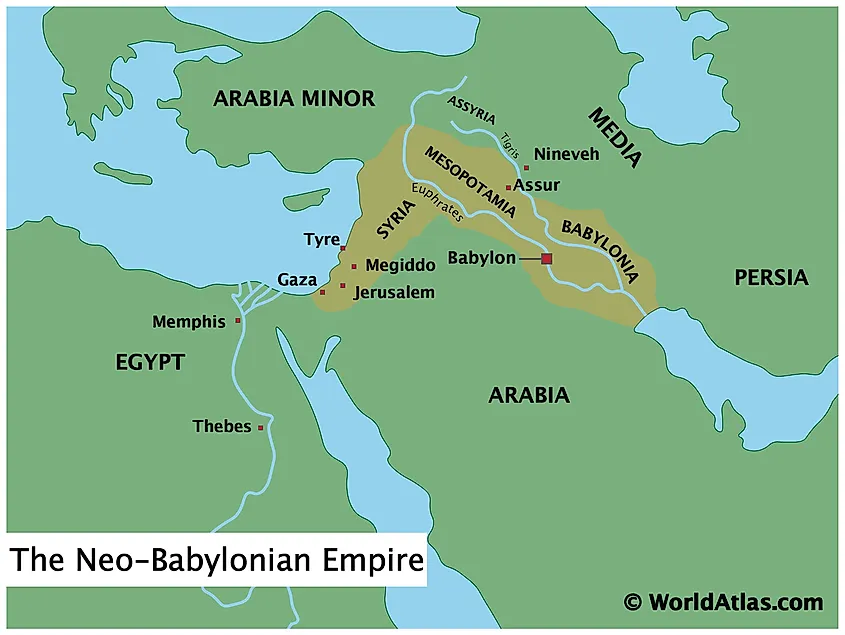
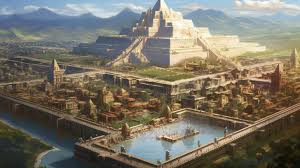 Assur was the second son of Noah's son Shem. Asuur was also an ancient kingdom, Aššur also known as Ashur and Qal'at Sherqat, was the capital of the Old Assyrian city-state (2025–1364 BC), the Middle Assyrian Empire (1363–912 BC). The ancient city of Ashur is located on the Tigris River in northern Mesopotamia in a specific geo-ecological zone, at the borderline between rain-fed and irrigation agriculture. The city dates back to the 3rd millennium BC. From the 14th to the 9th centuries BC it was the first capital of the Assyrian Empire, a city-state and trading platform of international importance. It also served as the religious capital of the Assyrians, associated with the god Ashur. The city was destroyed by the Babylonians, but revived during the Parthian period in the 1st and 2nd centuries.
Assur was the second son of Noah's son Shem. Asuur was also an ancient kingdom, Aššur also known as Ashur and Qal'at Sherqat, was the capital of the Old Assyrian city-state (2025–1364 BC), the Middle Assyrian Empire (1363–912 BC). The ancient city of Ashur is located on the Tigris River in northern Mesopotamia in a specific geo-ecological zone, at the borderline between rain-fed and irrigation agriculture. The city dates back to the 3rd millennium BC. From the 14th to the 9th centuries BC it was the first capital of the Assyrian Empire, a city-state and trading platform of international importance. It also served as the religious capital of the Assyrians, associated with the god Ashur. The city was destroyed by the Babylonians, but revived during the Parthian period in the 1st and 2nd centuries. 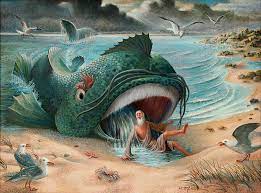
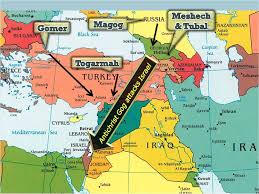
 h alone.
h alone. ||||||
|||||| 
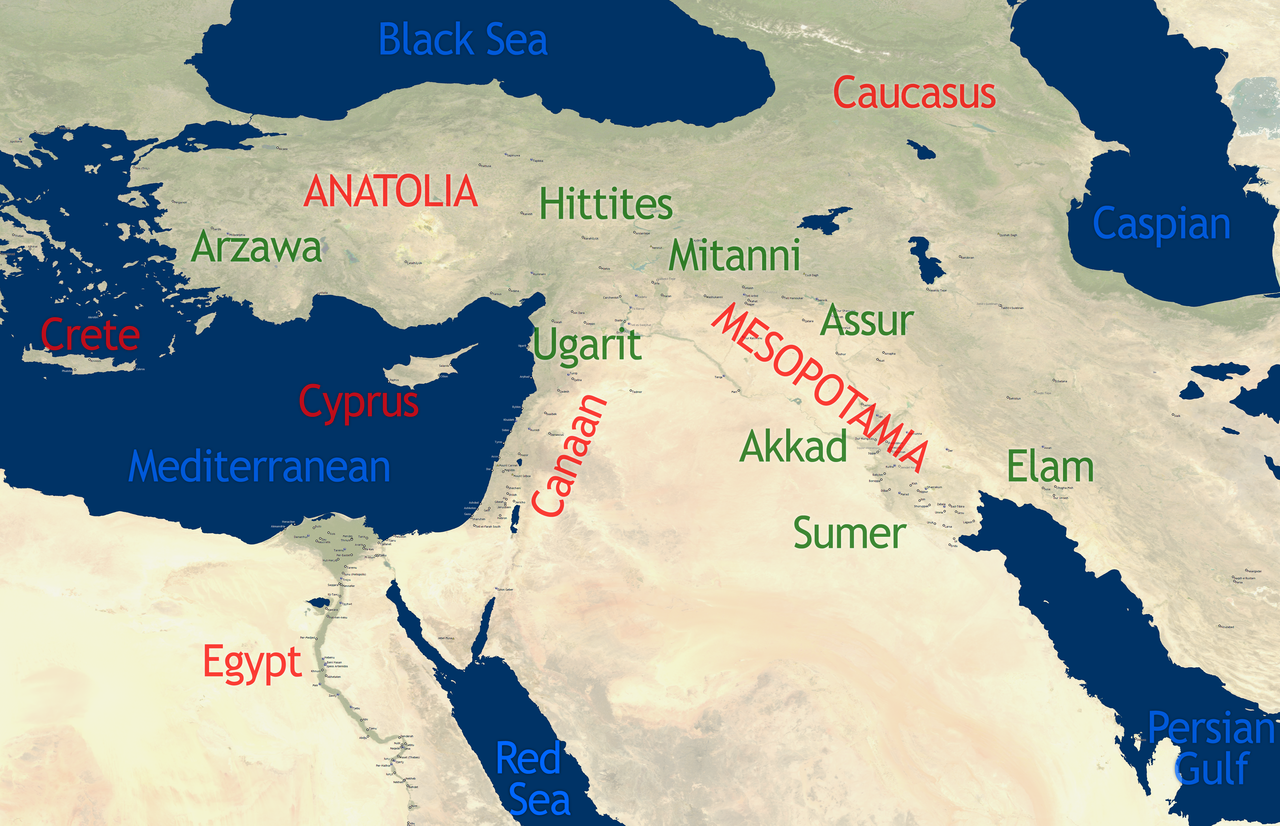
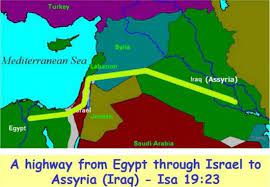 =======
=======